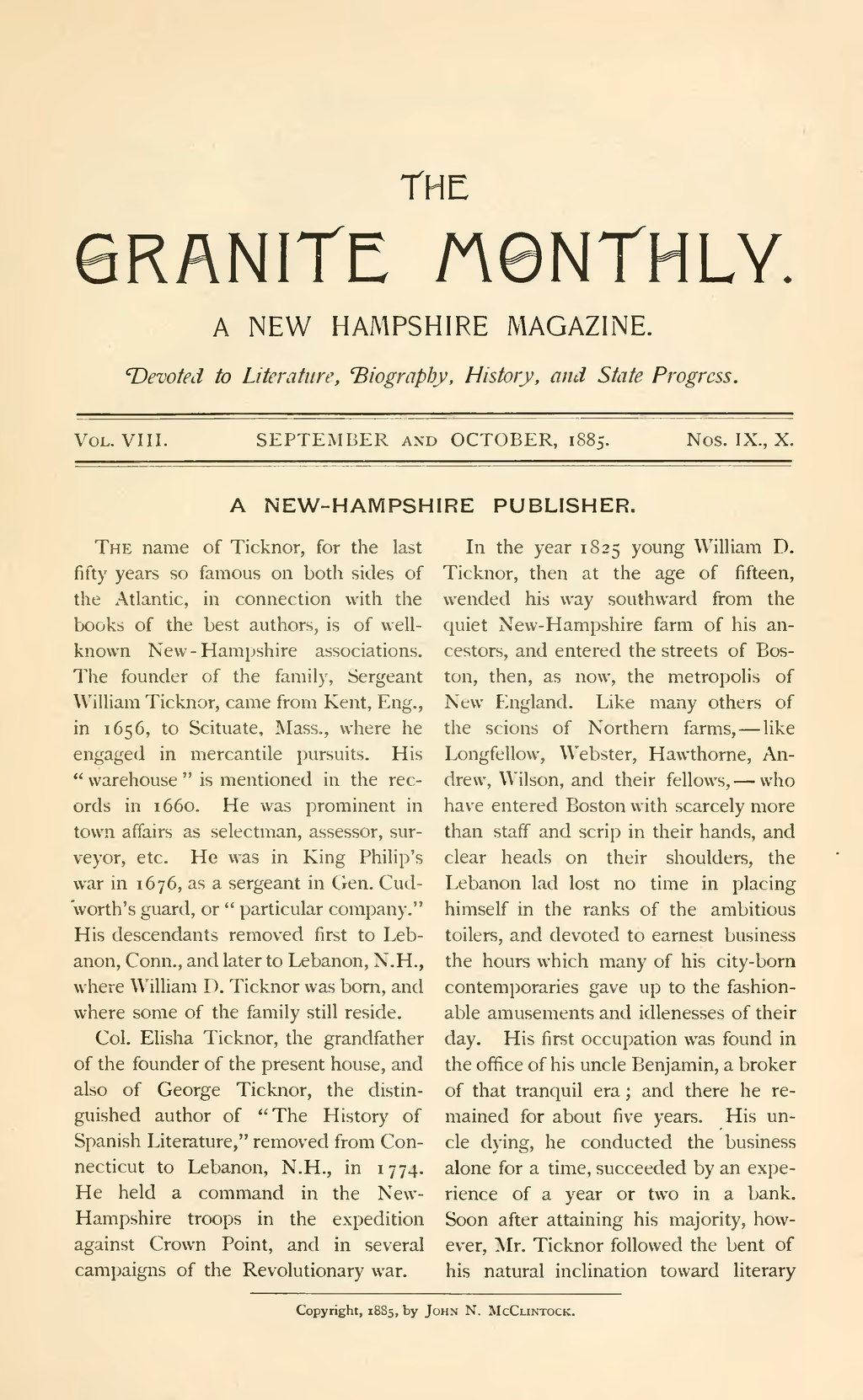The
���RANITE neNTHLY.
A NEW HAMPSHIRE MAGAZINE.
'Devoted to Literature, biography, History, and State Progr&ss.
��Vol. VIII.
��SEPTEMBER and OCTOBER, 1885.
��Nos. IX., X.
��A NEW-HAMPSHIRE PUBLISHER.
��The name of Ticknor, for the last fifty years so famous on both sides of the Atlantic, in connection with the books of the best authors, is of well- known New- Hampshire associations. The founder of the family, Sergeant William Ticknor, came from Kent, Eng., in 1656, to Scituate, Mass., where he engaged in mercantile pursuits. His " warehouse " is mentioned in the rec- ords in 1660. He was prominent in town affairs as selectman, assessor, sur- veyor, etc. He was in King Philip's war in 1676, as a sergeant in Gen. Cud- worth's guard, or " particular company." His descendants removed first to Leb- anon, Conn., and later to Lebanon, N.H., where William D. Ticknor was born, and where some of the family still reside.
Col. Elisha Ticknor, the grandfather of the founder of the present house, and also of George Ticknor, the distin- guished author of "The History of Spanish Literature," removed from Con- necticut to Lebanon, N.H., in 1774. He held a command in the New- Hampshire troops in the expedition against Crown Point, and in several campaigns of the Revolutionary war.
��In the year 1825 young William D. Ticknor, then at the age of fifteen, wended his way southward from the quiet New-Hampshire farm of his an- cestors, and entered the streets of Bos- ton, then, as now, the metropolis of New England. Like many others of the scions of Northern farms, — like Longfellow, Webster, Hawthorne, An- drew, Wilson, and their fellows, — who have entered Boston with scarcely more than staff and scrip in their hands, and clear heads on their shoulders, the Lebanon lad lost no time in placing himself in the ranks of the ambitious toilers, and devoted to earnest business the hours which many of his city-born contemporaries gave up to the fashion- able amusements and idlenesses of their day. His first occupation was found in the office of his uncle Benjamin, a broker of that tranquil era ; and there he re- mained for about five years. His un- cle dying, he conducted the business alone for a time, succeeded by an expe- rience of a year or two in a bank. Soon after attaining his majority, how- ever, Mr. Ticknor followed the bent of his natural inclination toward literary
��Copyright, 1885, by John N. McClintock.
�� �
